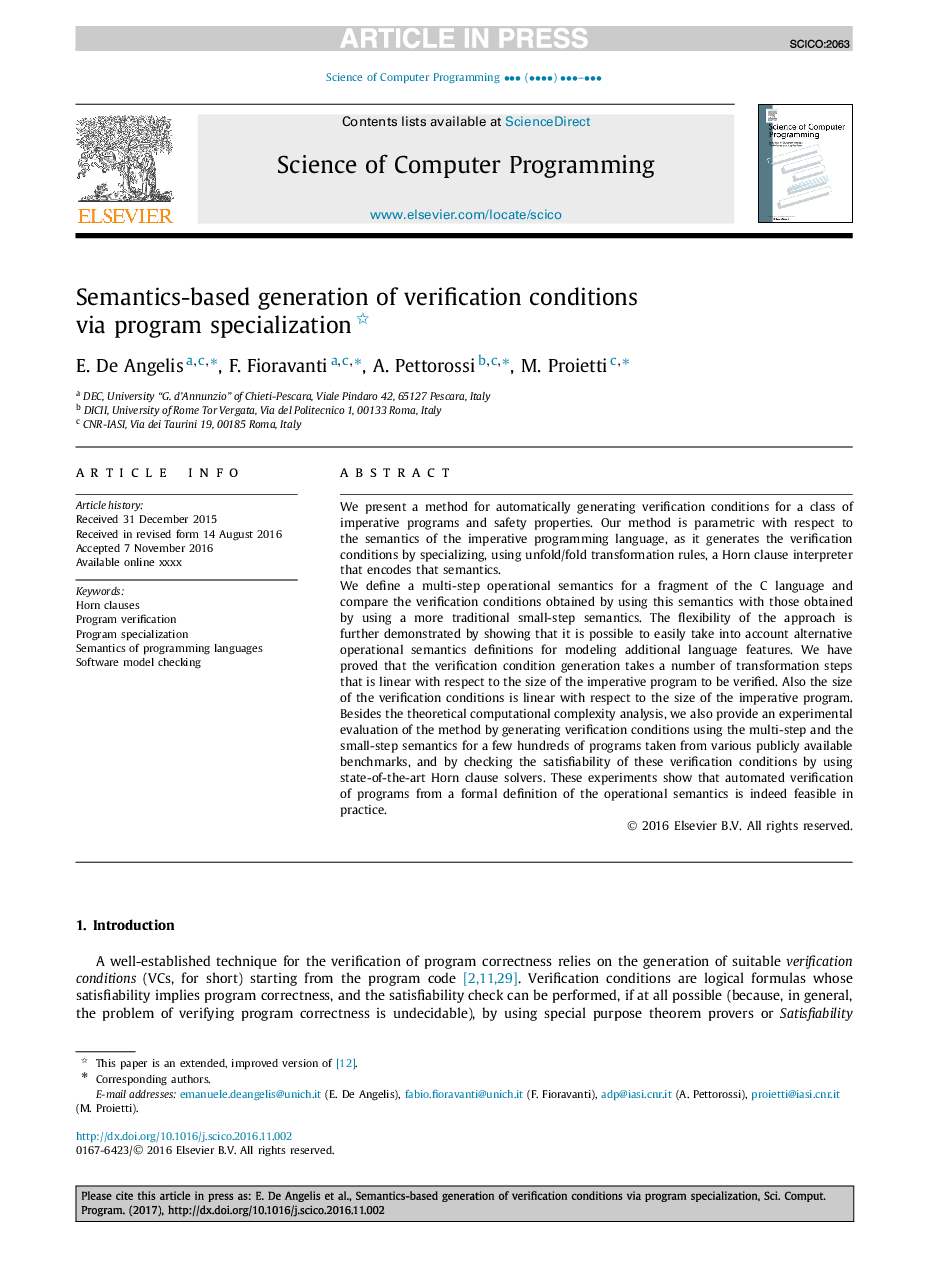| Article ID | Journal | Published Year | Pages | File Type |
|---|---|---|---|---|
| 4951748 | Science of Computer Programming | 2017 | 31 Pages |
Abstract
We define a multi-step operational semantics for a fragment of the C language and compare the verification conditions obtained by using this semantics with those obtained by using a more traditional small-step semantics. The flexibility of the approach is further demonstrated by showing that it is possible to easily take into account alternative operational semantics definitions for modeling additional language features. We have proved that the verification condition generation takes a number of transformation steps that is linear with respect to the size of the imperative program to be verified. Also the size of the verification conditions is linear with respect to the size of the imperative program. Besides the theoretical computational complexity analysis, we also provide an experimental evaluation of the method by generating verification conditions using the multi-step and the small-step semantics for a few hundreds of programs taken from various publicly available benchmarks, and by checking the satisfiability of these verification conditions by using state-of-the-art Horn clause solvers. These experiments show that automated verification of programs from a formal definition of the operational semantics is indeed feasible in practice.
Keywords
Related Topics
Physical Sciences and Engineering
Computer Science
Computational Theory and Mathematics
Authors
E. De Angelis, F. Fioravanti, A. Pettorossi, M. Proietti,
